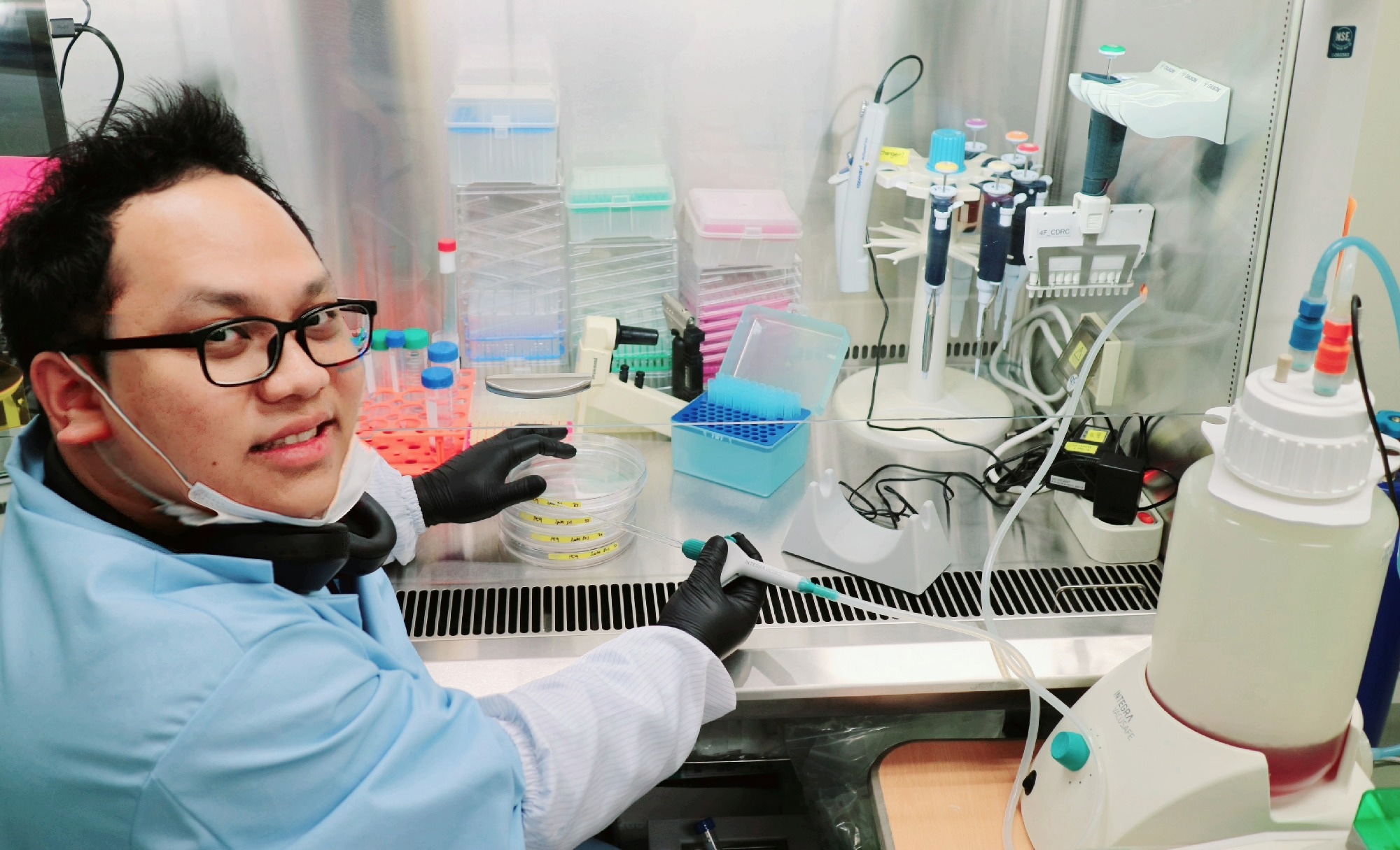Researchers in the Cho Lab at Seoul National University’s College of Veterinary Medicine, are using the VACUSAFE safe aspiration system and VACUSIP portable aspiration system from INTEGRA Biosciences to help them culture organoids from cancer-stricken domesticated dogs as part of a comparative medicine research initiative. Collaborating closely with the university’s veterinary practitioners, researchers aim to expand the number of canine NGS datasets, in a bid to advance our understanding of the biological progression of tumors in both human and dog oncology.
 INTEGRA Biosciences’ vacuum aspirations systems accelerate canine cancer research. Image Credit: INTEGRA Biosciences
INTEGRA Biosciences’ vacuum aspirations systems accelerate canine cancer research. Image Credit: INTEGRA Biosciences
Borris D. Aldonza, facility manager for the lab, commented: “We perform daily microvolume aspirations of organoid cultures, working with many diverse samples from the university’s veterinary hospital. The compact VACUSAFE and VACUSIP systems provide us with a finely controlled aspiration technique that enables accurate work in our NGS workflows. The VACUBOY vacuum hand operator on the VACUSAFE features a finger-activated valve that precisely regulates vacuum flow, enabling sensitive fingertip control and markedly improving accuracy when aspirating microvolumes. INTEGRA’s VACUSAFE also has multiple vacuum intensity settings that allow us to control the amount of suction force, which is ideal for the delicate handling of precious samples such as organoids. The VACUSIP is perfect for daily microvolume aspiration tasks, as it allows us to aspirate any remaining liquid from the samples – which is simply unachievable by manual pipetting – and saves us a lot of time for our microplate- and PCR plate-based samples.”
We are very satisfied with the VACUSAFE and VACUSIP and we’re looking forward to continuing our relationship with INTEGRA in the future. The company’s products have helped us to achieve great feats so far – including our successful publication of the first reference epigenome of the domesticated dog – and we plan to keep moving the field of comparative oncology forwards using such robust, reliable equipment.”
Borris D. Aldonza, Facility Manager, Cho Lab